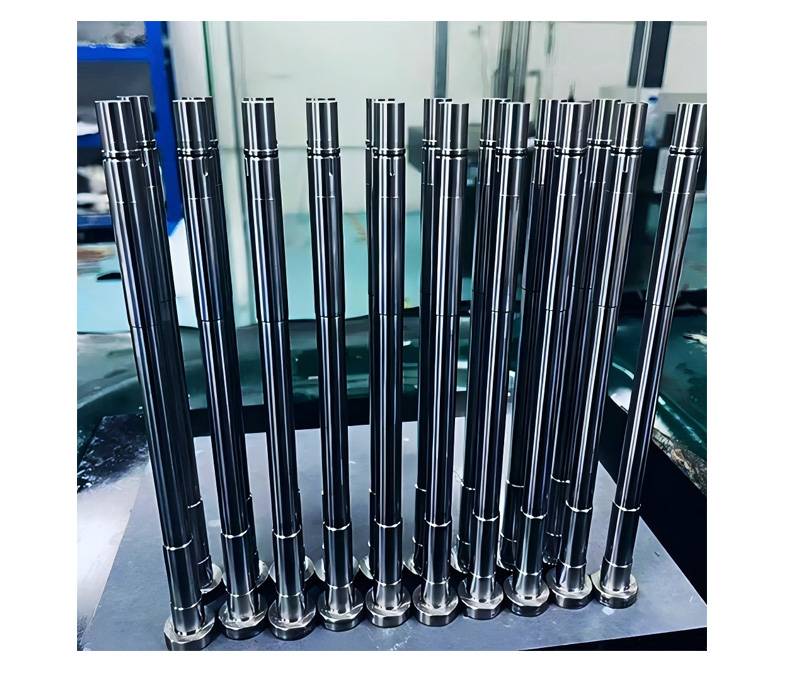How Do Mold Core Pins Affect Injection Molding
Mold core pins are slender, cylindrical components inserted into the mold cavity to create holes or internal features in the final product. They are made from various materials, including stainless steel, tool steel, and carbide, depending on the application and material being molded. Their primary function is to ensure the accuracy and integrity of the internal features of molded parts.This is due to plastic moulding parts Its value attribute is relatively large, and it is easy to become the backbone of the industry. https://www.dghrjmmj.com
1. The Role of Core Pins in Injection Molding
Core pin injection molding relies heavily on the precision of these pins. They define the exact shape and dimensions of the internal features of a part. Any deviation in the size, shape, or position of the core pins can result in defects, affecting the functionality and aesthetics of the final product. High-quality mold core pins ensure that each molded part meets the required specifications with minimal variation.
2. Durability and Wear Resistance
Mold core pins must withstand the high pressures and temperatures of the injection molding process. A reputable mold core pins factory produces pins with excellent durability and wear resistance, ensuring they can endure repeated cycles without significant wear or deformation. This durability translates to longer mold life and consistent part quality over time.
3. Material Selection
The choice of material for mold core pins is crucial. Different materials offer varying levels of hardness, toughness, and resistance to wear and corrosion. A reliable mold core pins supplier can provide guidance on the best material for specific applications, ensuring optimal performance and longevity. For instance, carbide core pins are known for their exceptional hardness and wear resistance, making them ideal for high-volume production runs.
4. Surface Finish and Coating
The surface finish of mold core pins plays a significant role in the injection molding process. Smooth, polished surfaces reduce friction and wear, enhancing the pin’s lifespan and the quality of the molded parts. Additionally, some core pins are coated with specialized materials to further improve their performance. These coatings can provide additional wear resistance, reduce friction, and enhance the release of the molded part from the pin.Importance of Choosing the Right Mold Core Pins Supplier and Factory
Selecting the right mold core pins supplier and factory is critical to the success of the injection molding process. Here are some factors to consider:
5. Quality and Consistency
A reputable supplier ensures that each mold core pin meets stringent quality standards. Consistent quality is vital to maintain the precision and integrity of the molded parts, reducing the risk of defects and rejections.
6. Customization and Expertise
Different injection molding projects have unique requirements. A skilled supplier can provide customized mold core pins tailored to specific applications. Their expertise in material selection, design, and manufacturing ensures optimal performance and longevity.
7. Timely Delivery and Support
In the fast-paced manufacturing industry, timely delivery is crucial. A reliable mold core pins factory ensures on-time delivery of high-quality pins, minimizing downtime and production delays. Additionally, they offer ongoing support and assistance, helping manufacturers address any challenges that may arise during the molding process.
Mold core pins are essential components in the injection molding process, significantly affecting the precision, durability, and overall quality of molded parts. Choosing a reliable mold core pins supplier and factory ensures that these critical components meet the highest standards, contributing to the success and efficiency of the injection molding process. By understanding the role and importance of core pins, manufacturers can make informed decisions, leading to improved product quality and manufacturing efficiency.